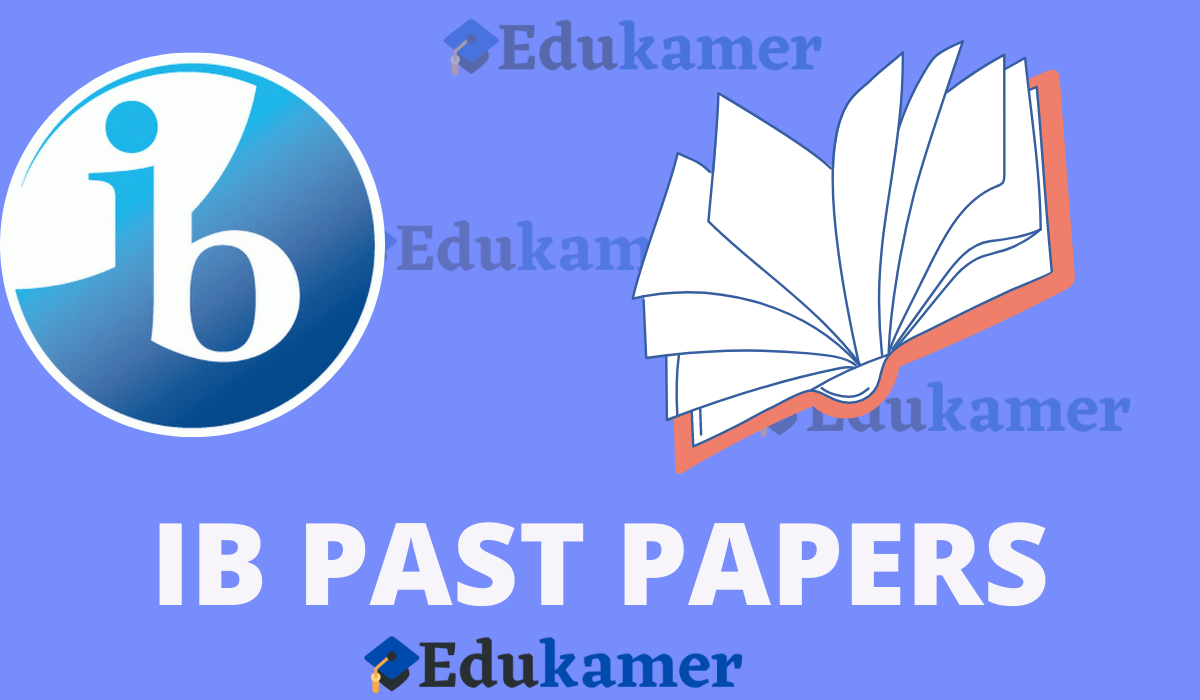Check here for all Environmental systems and societies IB past papers 2022 May session (M22). Download in PDF M22 Environmental Systems and Societies IB past papers.
The International Baccalaureate (IB) is a globally recognized educational program that offers four different programs for students aged 3 to 19. These programs aim to develop students who are:
- Inquiring: with a natural curiosity and desire to learn.
- Knowledgeable: with a broad and balanced understanding of the world.
- Thinkers: who can critically analyze information and solve problems creatively.
- Communicators: who can express themselves effectively in different languages and contexts.
- Principled: with a strong sense of ethics and social justice.
- Open-minded: who are respectful of different cultures and perspectives.
- Caring: who are compassionate and empathetic towards others.
- Balanced: who are physically and emotionally well-rounded.
- Risk-takers: who are willing to challenge themselves and learn from their mistakes.
- Reflective: who can learn from their experiences and make informed decisions about their future.
The IB programs are offered at authorized schools around the world. Students who complete the IB program are well-prepared for further study at universities and colleges worldwide.
Here are some key points about the IB:
Programs:
- Primary Years Programme (PYP): for students aged 3 to 12.
- Middle Years Programme (MYP): for students aged 11 to 16.
- Diploma Programme (DP): for students aged 16 to 19.
- Career-related Programme (CP): for students aged 16 to 19.
Benefits:
- Develops a strong academic foundation.
- Encourages critical thinking and problem-solving skills.
- Promotes intercultural understanding and respect.
- Provides opportunities for personal growth and development.
- Prepares students for success in university and beyond.
Challenges:
- The IB programs can be demanding and require a significant commitment from students.
- Not all universities and colleges are familiar with the IB program.
- The cost of attending an IB school can be high.
Resources:
- The International Baccalaureate website: https://www.ibo.org/
- The IB blog: https://blogs.ibo.org/ib-community-blog/
- The IB community forum: https://ibsurvival.com/forum/8-general-ib-discussion/
Additional Information:
- The International Baccalaureate was founded in 1968.
- There are currently over 5,000 IB schools in over 150 countries.
- Over 2 million students have completed the IB program.
HL and SL in the IB exam
In the International Baccalaureate (IB) Diploma Programme, HL stands for Higher Level and SL stands for Standard Level. These designations are used to differentiate the two available levels of difficulty for each IB subject.
Key differences between HL and SL:
- Depth and breadth of content: HL courses cover a broader and deeper range of topics compared to SL courses. The material is more complex and requires a higher level of understanding.
- Assessment: HL exams are longer and more challenging than SL exams. They may require students to analyze and synthesize information in more complex ways.
- Time commitment: HL courses require more time and effort than SL courses. Students should expect to spend approximately 240 hours on HL subjects and 150 hours on SL subjects.
- Impact on university applications: Taking HL subjects can demonstrate a student’s academic rigor and commitment to their studies. This may be beneficial for applications to competitive universities, particularly those in the United Kingdom and other European countries.
Choosing between HL and SL:
The decision of whether to take a subject at HL or SL should be based on several factors, including:
- Academic ability and interest: Students should choose HL subjects that they are passionate about and feel confident in their ability to succeed.
- University requirements: Some universities may require or recommend specific HL subjects for certain degree programs.
- Time management: Students should consider their overall workload and their ability to manage the demands of HL courses.
- Future career aspirations: HL subjects may be beneficial for certain careers, particularly those in research or academia.
Here is a table summarizing the key differences between HL and SL:
| Feature | HL | SL |
|---|---|---|
| Depth and breadth of content | More | Less |
| Assessment | More challenging | Less challenging |
| Time commitment | 240 hours | 150 hours |
| Impact on university applications | More beneficial | Less beneficial |
Ultimately, the decision of whether to take HL or SL is a personal one. Students should weigh the pros and cons carefully and make the choice that is best for them.
Environmental Systems and Societies IB past papers 2022 May session (M22)
- Environmental_systems_and_societies_paper_1__question_booklet_SL_Spanish.pdf 915.17 KB
- Environmental_systems_and_societies_paper_1__SL_markscheme.pdf 687.66 KB
- Environmental_systems_and_societies_paper_1__SL_markscheme_Spanish.pdf 579.91 KB
- Environmental_systems_and_societies_paper_1__text_booklet_SL.pdf 3.51 MB
- Environmental_systems_and_societies_paper_1__question_booklet_SL.pdf 895.74 KB
- Environmental_systems_and_societies_paper_1__question_booklet_SL_French.pdf 895.38 KB
- Environmental_systems_and_societies_paper_2__SL.pdf 1.24 MB
- Environmental_systems_and_societies_paper_2__SL_French.pdf 1.23 MB
- Environmental_systems_and_societies_paper_2__SL_markscheme.pdf 844.03 KB
- Environmental_systems_and_societies_paper_2__SL_markscheme_Spanish.pdf 918.49 KB
- Environmental_systems_and_societies_paper_1__text_booklet_SL_French.pdf 3.52 MB
- Environmental_systems_and_societies_paper_1__text_booklet_SL_Spanish.pdf 3.56 MB



